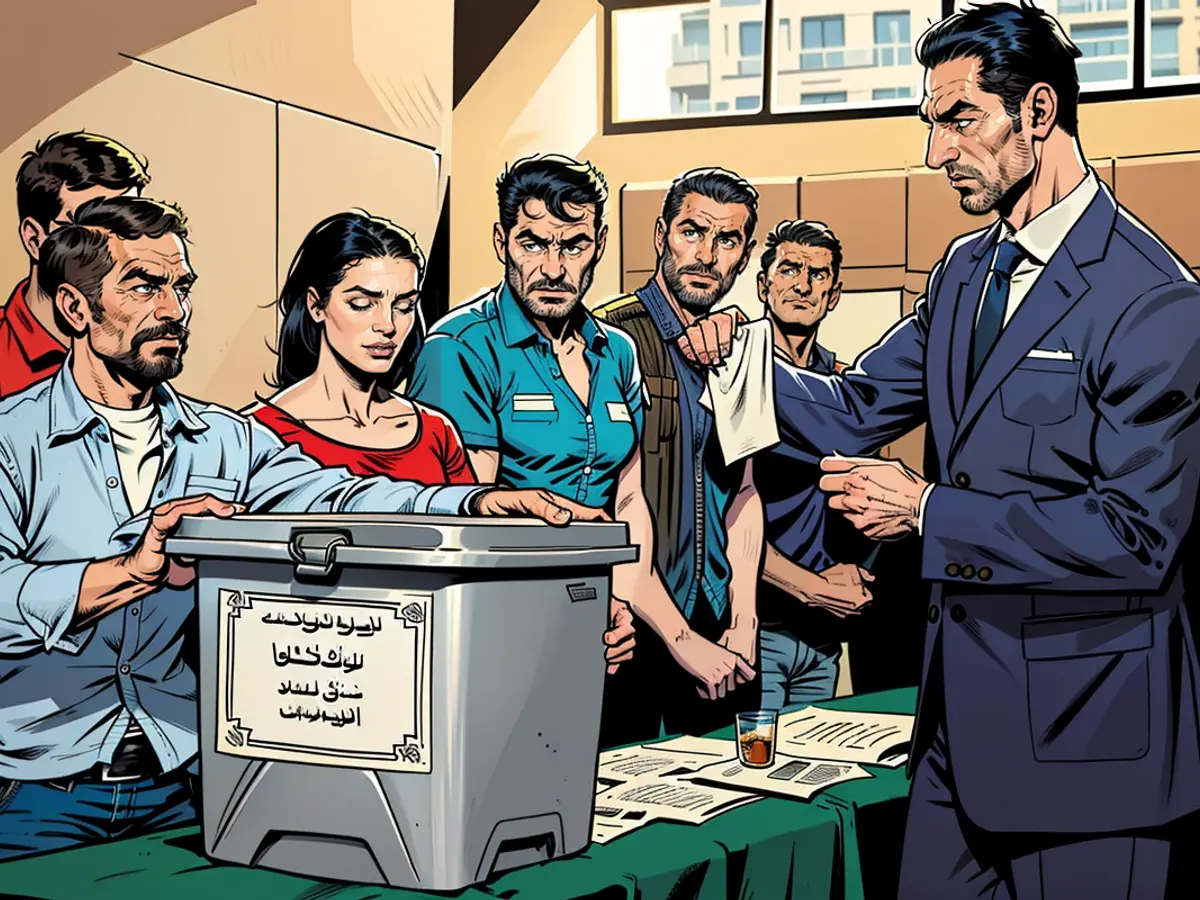In Syria, parliamentary elections take place - however, without opposition
For the fourth time since the start of the civil war in Syria, people in the government-controlled areas of the country cast their votes in the parliamentary elections on Monday. The outcome was hardly surprising: The Baath Party, which has ruled the country since 1963, and its left-secular and Arab nationalist allies ran almost unopposed. Independent candidates were the only alternative.
Over 1500 candidates were running for the 250 seats in the largely government-controlled Syrian parliament. According to the national election commission, around 7400 candidates had withdrawn their candidacy in the past few days. The approximately 8100 polling stations were scheduled to remain open until 19.00 hours on Monday.
The Presidential Office released photos showing President Assad casting his vote in Damascus's capital. "We must take responsibility for electing good people and not repeat the mistakes of the past by voting for the old familiar faces who cannot change anything," said the 49-year-old voter Bodur Abu Ghasaleh after casting her vote in Damascus.
The elections proceeded without major incidents until midday, with the exception of the southern province of Suweida, where many members of the Druze minority live. According to the Syrian Observatory for Human Rights (SOHR), several polling stations were attacked there. Ballot boxes were reportedly smashed or set on fire. The news portal "Suwayda24" reported protests against Assad in the province. A person was reportedly injured by shots from security forces.
According to the Syrian quota system, 127 parliamentary seats are reserved for candidates who are workers or farmers. The remaining 123 seats are open to all professional groups. The Baath Party was expected to win the most seats in this election.
The Syrian opposition living in exile described the election as "absurd" in the past week. The government-organized ballot process represented "the ruling authority" only. Syrians in the Kurdish-controlled northeast, along the northern border with Turkey, and in the jihadist-controlled bastion of Idlib in the northwest are effectively disenfranchised. Millions of Syrian refugees seeking shelter abroad were also unable to participate in the election.
- Despite the Syrian opposition living in exile labeling the elections as "absurd," the Fourth parliament elections in Syria, held in government-controlled areas, saw a high number of candidates running, with over 1500 vying for the 250 seats.
- The outcome of the parliament elections in Syria, following the Civil War, was largely expected, as the Baath Party, having ruled the country since 1963, and its allies ran almost unopposed, with independent candidates being the only real opposition.
- The Southern province of Suweida, known for its Druze minority, was an exception during the parliament elections in Syria, as reports indicated several polling stations were attacked, with ballot boxes smashed or set on fire, leading to protests against President Assad and reported injuries from security forces.








